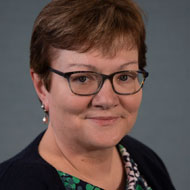
Professor Susan Dawson will guide efforts to promote UK veterinary education
The Veterinary Schools Council (VSC) has named Professor Susan Dawson as its new chair.
Professor Dawson is Dean of the Institute of Veterinary Science at the University of Liverpool. With a background in infectious disease and public health, she is also chair of the RCVS education committee and a non-executive director at Pets at Home.
She succeeds Professor Ewan Cameron and will guide the Council as it works to promote UK veterinary education and research. This will include working with the RCVS to improve graduate outcomes and coordinating with medicine and dentistry on antimicrobial stewardship.
As Chair, Professor Dawson will also keep government informed of the benefit of EU staff and research funding as the UK enters the critical stages of the Brexit process.
Commenting on her appointment, Susan said: “I am delighted to have been chosen to lead the Council over the next period of its development and am keen to take forward the themes identified in VSC’s Strategic Plan.
"These include leadership, recruitment and research, as well as curriculum and assessment. My experience in education matters will be helpful as we continue working with the Royal College and employers to ensure that graduate outcomes are appropriate to today’s workplace.’
Professor Ewan Cameron said: “VSC has made great progress in the last three years, with its links with other bodies in the sector now deeper than ever before and its committees of vet school experts generating work ranging from admissions guidance to research mentorship. The Council will now be in excellent hands with Susan and I look forward to its continuing positive influence on veterinary education.”
Image (C) VSC.



 The latest
The latest